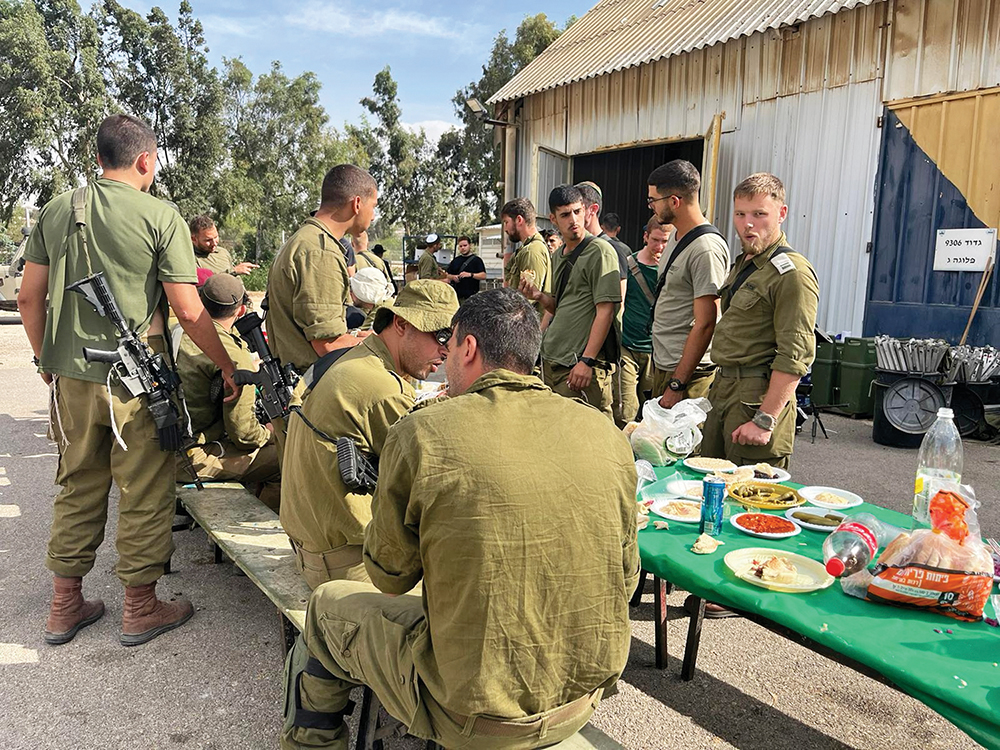
On the evening of Sunday, Oct. 29, I received a message from Rabbi Yisrael Goldberg from the Chabad of Rechavia that they had obtained permission to visit an army base in central Israel the following day, Oct. 30. I was invited to attend a chizuk session and barbecue event at an army base in central Israel. My role was to represent Kohanim on Call, an organization whose sole purpose is to maximize blessings for our brave soldiers.
To date, we have organized 1,500 Kohanim and have given over 10,000 blessings to soldiers. Most of these blessings were given virtually. We obtain the name of a soldier (e.g., Avraham ben Sarah) and a video of a Kohen making a blessing in their name is sent back to the party that provided us with the name. Every Thursday, we meet at the Kotel and virtually, via Zoom, to recite Tehillim and offer a Kohanic Blessing to all our soldiers and hostages.
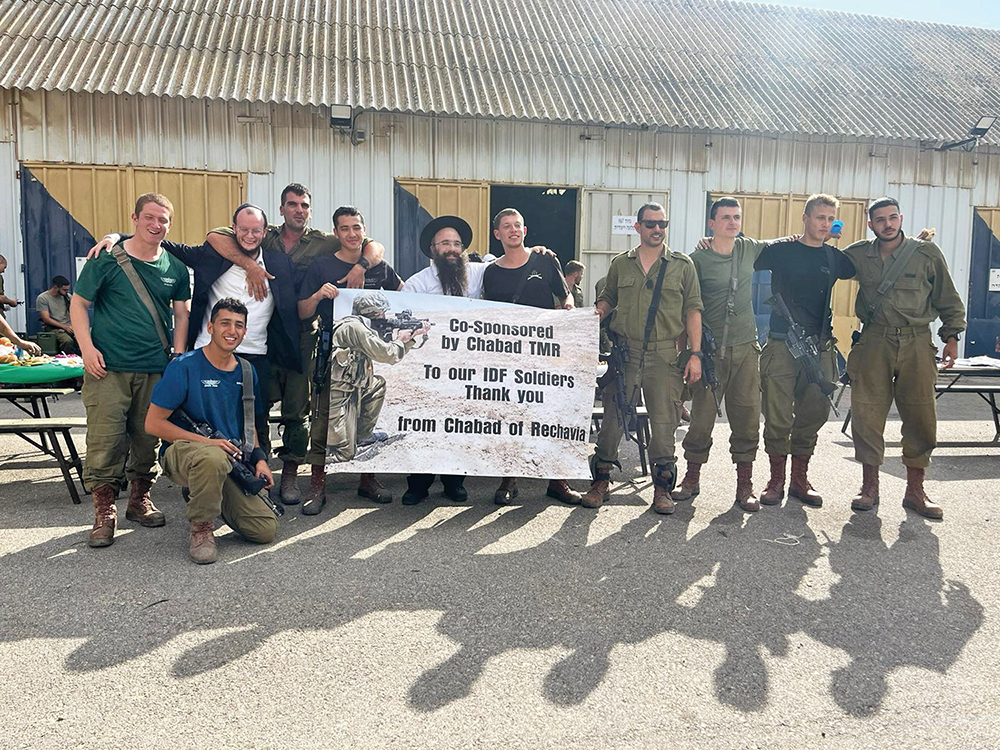
As a representative of Kohanim on Call, I felt the need to prepare an inspirational speech in Hebrew. This was no easy task, at least for me. So, I decided to turn to Devarim 20:3, which is the source for Mosholach Hamilchama, to see what the Kohen told the troops in days gone by. That was the easy part and it was done for me in Hebrew. Next came the more difficult task of deciding what inspirational message to convey to a hundred young soldiers going to war for the first time. After a few iterations, I came up with the following:
“You are going to war to fight evil. You are not only doing it for the people of Israel or for Jews around the world, but you are doing it for all of mankind. It is my honor and pleasure to convey a blessing from Hashem to protect you.”
I translated it into Hebrew, but it didn’t sound right. I then turned to Google Translate and it sounded even worse. So, I decided to consult my sabra grandson Yonatan, who provided an excellent translation.
I arrived at the Chabad office and we were off to the base. They brought with them 100 pairs of camouflaged tzitzit, tefillin, kippot, and a sound system. I did not know what to expect once we got to the base. There were four of us: three from Chabad, including the head of Chabad Rechavia, Rabbi Yisrael Goldberg; his assistant Rabbi Diamond, Chabadnik Avd; and myself. As we passed through security, we were treated as visiting dignitaries. We could smell the barbecue as we entered the gate. Some of the soldiers were kicking a soccer ball around, some were in the barracks reading and learning.
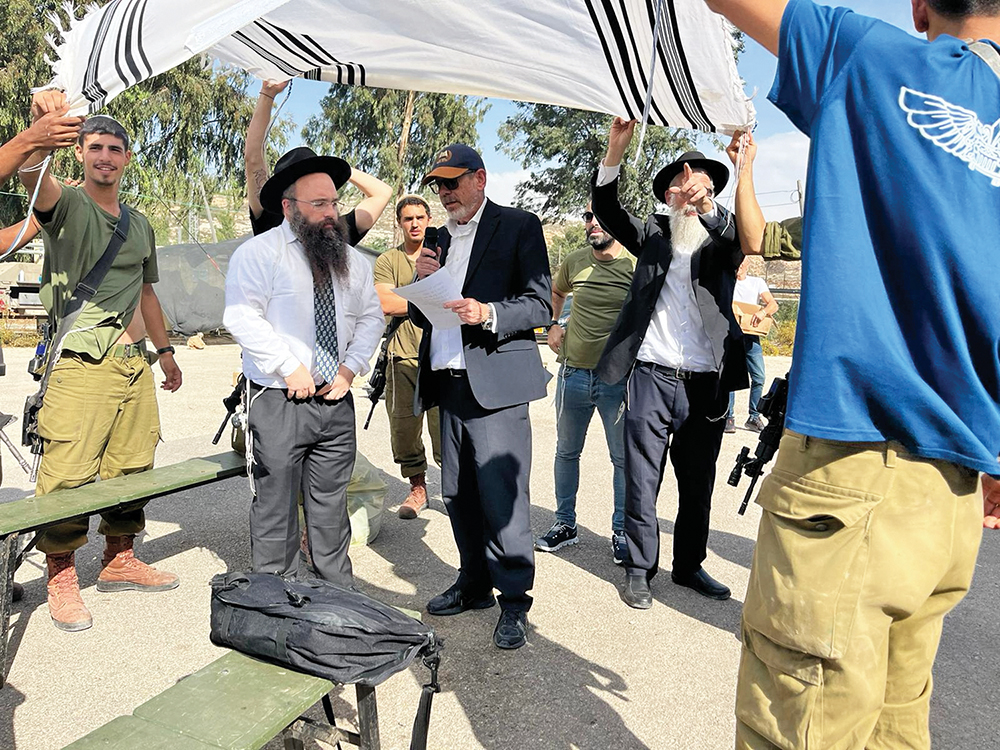
Rabbi Goldberg turned on the music and we all started singing and dancing. It was amazing. They seemed to be very relaxed. We met with two groups of soldiers. The first group of soldiers were young, in their early 20s. The second group was more seasoned, in their late 20s and early 30s. They were all very enthusiastic. As they were eating, we passed around a sheet for them to put their first names and mothers’ names. After they finished eating, Rabbi Goldberg took my tallit and spread it out like a chuppah, with four soldiers holding the corners. I gave my short speech and blessed them. After each verse, they shouted out “Amen.” After the blessing, we hugged all the soldiers, each one expressing their gratitude for coming and giving them a blessing. The soldiers were interested in where I came from and how long I had been in Israel. There were soldiers who made aliyah from the U.S., and there was a soldier who came from Mexico during his sheva brachot.
It was a very inspirational day, seeing the great work of Chabad and being inspired by the love and dedication of our soldiers. May the blessings they received protect them and bring them back safely from battle.
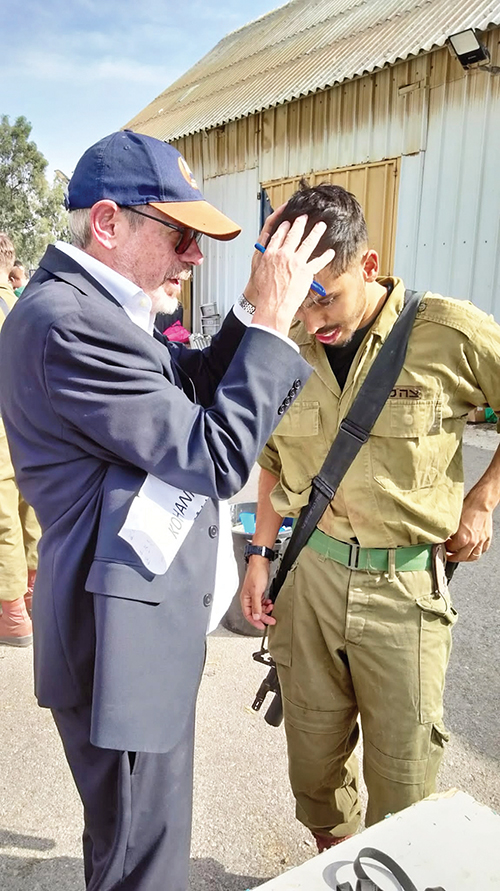
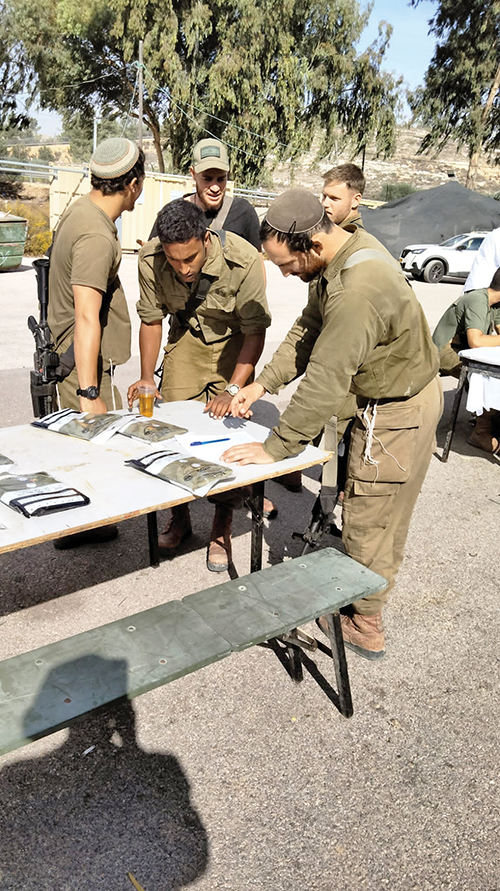
Rabbi Paul Bloom is a retired IBM/Bellcore executive who now lives in Jerusalem with his wife Ettie.









